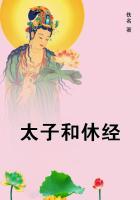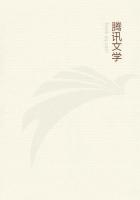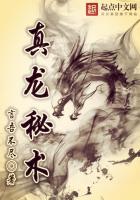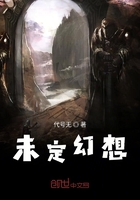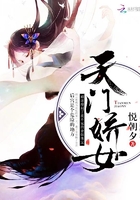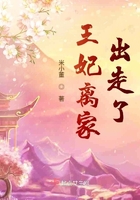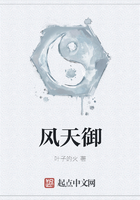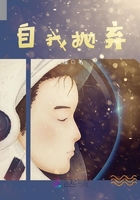ONCE more! this is a story of education, not of adventure! It is meant to help young men -- or such as have intelligence enough to seek help -- but it is not meant to amuse them. What one did -- or did not do -- with one's education, after getting it, need trouble the inquirer in no way; it is a personal matter only which would confuse him. Perhaps Henry Adams was not worth educating; most keen judges incline to think that barely one man in a hundred owns a mind capable of reacting to any purpose on the forces that surround him, and fully half of these react wrongly. The object of education for that mind should be the teaching itself how to react with vigor and economy. No doubt the world at large will always lag so far behind the active mind as to make a soft cushion of inertia to drop upon, as it did for Henry Adams; but education should try to lessen the obstacles, diminish the friction, invigorate the energy, and should train minds to react, not at haphazard, but by choice, on the lines of force that attract their world. What one knows is, in youth, of little moment; they know enough who know how to learn. Throughout human history the waste of mind has been appalling, and, as this story is meant to show, society has conspired to promote it. No doubt the teacher is the worst criminal, but the world stands behind him and drags the student from his course.
The moral is stentorian. Only the most energetic, the most highly fitted, and the most favored have overcome the friction or the viscosity of inertia, and these were compelled to waste three-fourths of their energy in doing it.
Fit or unfit, Henry Adams stopped his own education in 1871, and began to apply it for practical uses, like his neighbors. At the end of twenty years, he found that he had finished, and could sum up the result. He had no complaint to make against man or woman. They had all treated him kindly; he had never met with ill-will, ill-temper, or even ill-manners, or known a quarrel. He had never seen serious dishonesty or ingratitude. He had found a readiness in the young to respond to suggestion that seemed to him far beyond all he had reason to expect. Considering the stock complaints against the world, he could not understand why he had nothing to complain of.
During these twenty years he had done as much work, in quantity, as his neighbors wanted; more than they would ever stop to look at, and more than his share. Merely in print, he thought altogether ridiculous the number of volumes he counted on the shelves of public libraries. He had no notion whether they served a useful purpose; he had worked in the dark; but so had most of his friends, even the artists, none of whom held any lofty opinion of their success in raising the standards of society, or felt profound respect for the methods or manners of their time, at home or abroad, but all of whom had tried, in a way, to hold the standard up. The effort had been, for the older generation, exhausting, as one could see in the Hunts; but the generation after 1870 made more figure, not in proportion to public wealth or in the census, but in their own self-assertion. A fair number of the men who were born in the thirties had won names -- Phillips Brooks;
Bret Harte; Henry James; H. H. Richardson; John La Farge; and the list might be made fairly long if it were worth while; but from their school had sprung others, like Augustus St. Gaudens, McKim, Stanford White, and scores born in the forties, who counted as force even in the mental inertia of sixty or eighty million people. Among all these Clarence King, John Hay, and Henry Adams had led modest existences, trying to fill in the social gaps of a class which, as yet, showed but thin ranks and little cohesion.
The combination offered no very glittering prizes, but they pursued it for twenty years with as much patience and effort as though it led to fame or power, until, at last, Henry Adams thought his own duties sufficiently performed and his account with society settled. He had enjoyed his life amazingly, and would not have exchanged it for any other that came in his way; he was, or thought he was, perfectly satisfied with it; but for reasons that had nothing to do with education, he was tired; his nervous energy ran low; and, like a horse that wears out, he quitted the race-course, left the stable, and sought pastures as far as possible from the old. Education had ended in 1871; life was complete in 1890; the rest mattered so little!
As had happened so often, he found himself in London when the question of return imposed its verdict on him after much fruitless effort to rest elsewhere. The time was the month of January, 1892; he was alone, in hospital, in the gloom of midwinter. He was close on his fifty-fourth birthday, and Pall Mall had forgotten him as completely as it had forgotten his elders.
He had not seen London for a dozen years, and was rather amused to have only a bed for a world and a familiar black fog for horizon. The coal-fire smelt homelike; the fog had a fruity taste of youth; anything was better than being turned out into the wastes of Wigmore Street. He could always amuse himself by living over his youth, and driving once more down Oxford Street in 1858, with life before him to imagine far less amusing than it had turned out to be.
The future attracted him less. Lying there for a week he reflected on what he could do next. He had just come up from the South Seas with John La Farge, who had reluctantly crawled away towards New York to resume the grinding routine of studio-work at an age when life runs low. Adams would rather, as choice, have gone back to the east, if it were only to sleep forever in the trade-winds under the southern stars, wandering over the dark purple ocean, with its purple sense of solitude and void. Not that he liked the sensation, but that it was the most unearthly he had felt.

